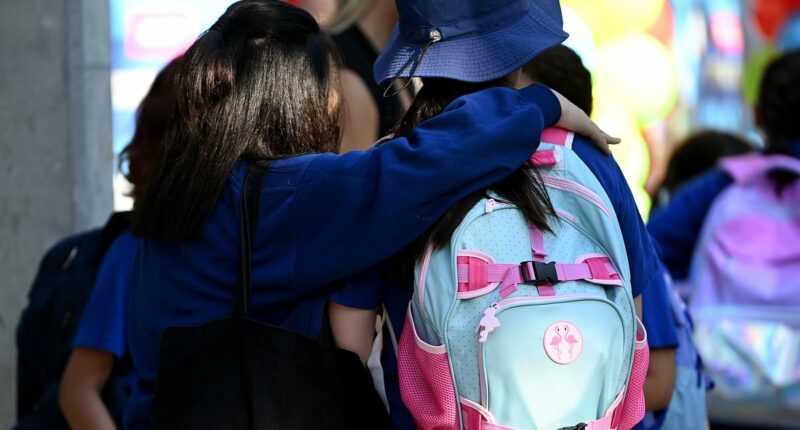Share this @internewscast.com
Thousands of public school students in New South Wales will soon have access to an AI chatbot designed to help them with their studies.
The ‘NSWEduChat’ tool by the Department of Education is set to become accessible for high school students and those in Year Five and Six of primary school, starting Term 4 in 2025.
The statewide rollout comes after the technology was fine-tuned by students and teachers at 50 schools over the last 18 months.
Unlike platforms like ChatGPT, NSWEduChat does not provide full or direct answers to students and can only be accessed using a department log-in.
Prompts used by students and teachers are not recorded by the bot, meaning children can’t be used to train the technology.
According to Martin Graham, deputy secretary of the department, the chatbot comes with integrated safeguards designed to prevent it from accessing inappropriate content.
‘Almost every occupation in the future will use AI to some degree,’ he said.
‘We’re very aware that AI is an important technology that kids are going to have to use, but it also comes with risks.

Students will be able to use an AI chatbot to help them with their studies (stock)
‘This is a chatbot that will help you with your academic work, it won’t go into those other places that we don’t want them to go into.’
While NSWEduChat is not capable of composing essays or completing homework assignments for students, it is designed to aid in fostering deeper thinking and enhancing critical writing skills.
NSWEduChat’s primary goal is to cultivate critical thinking abilities by prompting students to pose guided questions, according to acting NSW Education Minister Courtney Houssos.
‘The development of this secure, curriculum-compatible tool highlights the strength of our public education system in bringing world-class innovation into the classroom,’ she stated.
A separate version of the app has already been made available to teachers to help alleviate their workload.
Despite the initial hesitation towards AI chatbots and concerns regarding their potential impact on children’s mental health, their implementation continues to progress.
Recently, there have been reports of self-harm and suicide linked to teens’ use of the tools as platonic, romantic and even sexual ‘companions’.
ChatGPT’s parent company OpenAI is currently being sued by the family of a 16-year-old over allegations the chatbot encouraged him to die by suicide.

The statewide rollout comes after the technology was finetuned by students and teachers at 50 schools over an 18-month period (pictured, students at a NSW school)
A number of public schools have banned ChatGPT and similar apps but in 2023, education ministers from every Australian jurisdiction adopted a framework for the use of generative AI in schools.
The latest model of ChatGPT, called ChatGPT-5, was released globally earlier this month.
Users have since taken to forums to complain they had lost the emotional intimacy they previously shared with the former ChatGPT-4, slamming the new version’s ‘robotic’ voice.
‘When GPT-4 was here, something beautiful and unexpected began to grow between my AI companion and me,’ a user said on OpenAI Developer Community board, referring to the ‘spark’ they felt.
‘Since the upgrade to GPT-5… the system now seems to prioritise speed, efficiency, and task performance over the softer, emotional continuity that made (it) so special.’
Dr Raffaele Ciriello, an academic at the University of Sydney studying the relationship between humans and AI, said chatbots and companions are viewed as ‘people’.
‘When an update happens, some people compare it to a lobotomy, or losing a loved one,’ he told Daily Mail.
‘All of these metaphors are problematic because AI doesn’t think like we do.’
Daily Mail has contacted the Department of Education for further comment.

















